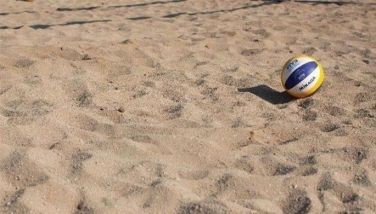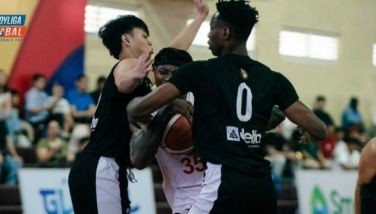Phl men in World Tchoukball
The Philippine men’s team will be seeing action in the ninth World Tchoukball Championship which will be held Aug. 8-11 at the Nilai Indoor Stadium in Negeri Simbilan, Malaysia. This will be a big break for the country, since its breakthrough performance in the 2017 World Beach Tchoukball Championships in Kaohsiung, Taiwan. The Philippines placed in the top 10 in both the men’s and women’s categories, despite pulling the players together from various locations. Though based in Bacolod, the Tchoukball Association of the Philippines (TAP) has members in most major cities in the country, like Metro Manila, Cebu, Davao, Iloilo and other places.
“This is a big break for the Philippines, since the adjustment will be easier,” explained TAP president Raymund Jamelo. “Traditionally, the world championships are held in Europe every four years, making it very expensive for Asian teams to travel there. This time, Malaysia offered to host.”
In this case, the reverse happened. One of the European teams backed out due to unforeseen circumstances, and the Philippines, as a wild card, filled the void. There are 16 teams in the men’s division, and 16 in the women’s division. The Philippines thus joins Argentina, Brazil, Cameroon, France, United Kingdom, Germany, Ghana, Hong Kong, India, Italy, Macau, Malaysia, Pakistan, Singapore, Switzerland, Thailand, Chinese Taiwan and Tunisia. Lots will be drawn when the delegations meet on Aug. 7.
For almost a decade, tchoukball has been gradually making inroads into schools to spread knowledge of the game in the Philippines. Originally designed as a means to practice handball, it has become an independent sport on its own. It employs a square frame or diagonally upright goal, a semicircular three-meter forbidden zone around the frame, and a handball. The goal is to score by bouncing it off the frame and outside the forbidden zone at an angle where the opposing team cannot catch it before it hits the floor. It is a fast-paced, dynamic, non-contact team sport.
“We see this sport as a perfect vehicle to teach our youth proper values,” adds Jamelo. “Sportsmanship and camaraderie are very important in tchoukball. So things like trash-talking and putting down others is discouraged.”
TAP has been independently supporting the sport, and has been able to send teams overseas to compete twice a year. In March of this year, TAP was accepted into the Philippine Olympic Committee. The Philippines is only the second country in Asia whose tchoukball association has been accepted into its National Olympic Committee.
The men’s team has a daunting challenge in the world championships. Taiwan is world champion, while Singapore is ranked second. European countries are bigger and stronger, but not as quick. The African countries are still learning the sport. The draw will have a big impact on how far the Philippines progresses.
TAP has also been a pillar of the sport’s development worldwide. Jamelo has been president of the Southeast Asian Tchoukball Federation, while his wife Elvie has been an official of the International Tchoukball Federation (FITB). They have helped influence the FITB’s policies on expansion and growth in other territories. Part of the sport’s philosophy is believing in a higher good beyond victory in the arena.
The dream is to have tchoukball become part of the country’s physical education curriculum. It will teach the youth fair play and teamwork at a very high level. The international tchoukball community in Asia is very tightly knit, and the support of the FITB makes the future of Philippine tchoukball seem very bright.
- Latest
- Trending




























